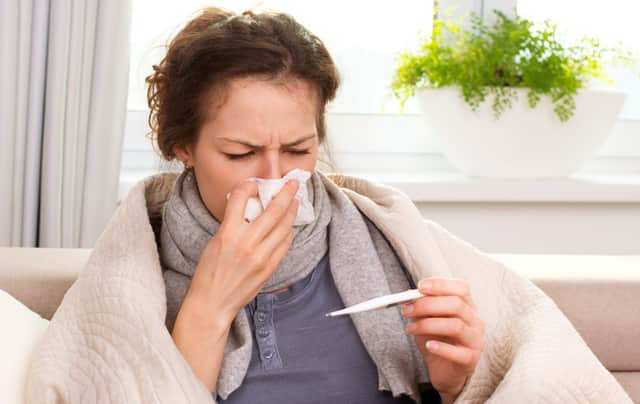The rules on getting a flu jab if you have cold or Covid symptoms


This article contains affiliate links. We may earn a small commission on items purchased through this article, but that does not affect our editorial judgement.
With winter approaching, people are being urged to come forward for their flu vaccination amid fears the virus will be circulating at the same time as Covid-19.
Health experts have warned that lockdowns and social distancing may have weakened natural immunity to flu, meaning the spread may be greater this winter than normal.
Advertisement
Hide AdAdvertisement
Hide AdEngland’s Deputy Chief Medical Officer Professor Johnathan Van-Tam has said that flu is a “significant public health concern” this winter and the public need to take “seriously” that both flu and Covid-19 will be co-circulating.
Professor Van-Tam said the best way to defend against the viruses, and to protect the NHS from unsustainable pressure, is to get the annual flu jab and the Covid-19 booster if you are eligible.
It is feared that if both viruses are contracted together, there will be a significant risk of hospitalisation and even death in some cases.
But the common cold is another bug that will be spreading this winter and many people have already reported falling ill with ‘the worst cold ever’.
Advertisement
Hide AdAdvertisement
Hide AdIf you are suffering from cold symptoms and want to get your flu jab, here’s what you need to know before booking your appointment.
Can I get the flu jab if I have a cold?
If you only have mild cold symptoms, such as a runny nose, you can still get your flu jab.
However, if you are ill with a high temperature or fever, the NHS advises that you should wait until you are better before getting your vaccine.
If you are unsure whether you should attend, speak to your GP before booking an appointment.
Advertisement
Hide AdAdvertisement
Hide AdCan I get the flu jab if I have Covid-19?
If you have tested positive for Covid-19, you should delay getting your flu vaccine and self-isolate at home to avoid spreading the virus to others.
Once you have recovered and are no longer contagious, it is important to still get the flu jab if you are eligible as this will provide protection for yourself and minimise the risk of passing it on to others who are vulnerable, such as those with underlying health conditions.
If you have had Covid-19, the NHS says it is safe for you to have the flu vaccine and the jab will still be effective at helping to prevent flu.
Who can get a free flu jab?
The following groups of people are eligible to receive free flu in 2021 to 2022::
Advertisement
Hide AdAdvertisement
Hide Ad- all children aged 2 to 15 (but not 16 years or older) on 31 August 2021
- those aged six months to under 50 years in clinical risk groups
- pregnant women
- those aged 50 years and over
- those in long-stay residential care homes
- carers
- close contacts of immunocompromised individuals frontline health and social care staff employed by:
- a registered residential care or nursing home
- registered domiciliary care provider
- a voluntary managed hospice provider
- Direct Payment (personal budgets) and/or Personal Health Budgets, such as Personal Assistants.
Who should not have the flu vaccine?
While most adults are safe to have the vaccine, you should avoid it if you have had a serious allergic reaction to a flu jab in the past.
Those who have an egg allergy may be at risk of an allergic reaction to the vaccine, as some flu jabs are made using eggs.